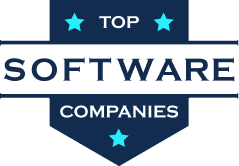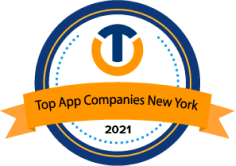How Custom Software Turns Boring Processes Into Revenue-Generating Engines

Software is a great combination of artistry and engineering.
— Bill Gates, Co-founder of Microsoft
Absolutely right! Particularly in the era of powerful digital technology that we currently inhabit.
With the quick change to digitalization in the software development sector, jobs like personnel management and food delivery are now easier to do. Because of the pandemic’s quest for simplicity, software is now more of a want rather than a luxurious one.
Employment in software application improvement is predicted to develop by 22% between 2020 and 2030, and the software marketplace is forecast to gain US$608.70 billion. Companies use digitalization to satisfy customer wishes.
They also use it to resolve personal and professional issues. The future of software will be full of solutions for different jobs as more businesses are formed.
In this blog, we’ll explore how custom software can turn ordinary, repetitive processes into powerful engines that drive profitability, create customer value, and enhance overall business efficiency.
Custom Software Development: What is it?

Bespoke software program improvement refers back to the procedure of creating a computer application or software. This procedure is customized to the unique requirements and methods of an organization or business enterprise. It is comparable to a suit that is fitted to a person’s tastes and problems.
Meeting Particular Business Requirements
A conventional organizer might not be suitable for you. If you struggle with tracking recipes, inventory, and orders, then a conventional organizer may not meet your needs. A carpenter might build a cabinet with sections made especially for ingredients, kitchenware, and pots and pans. In a similar vein, your custom software cabinet will simplify your kitchen tasks. It will improve your culinary experiences. Your cooking preferences will be customized by the cabinet.
When off-the-shelf generic software fails to solve the organizational problem’s pain points, firms that are categorized as struggling need to have custom software developed. It brings together a group of developers. They design a solution tailored to your organizational communication and operational efficiency requirements.
Retail companies can profit from a tailored system. This system manages inventory. It connects to online sales. It tracks consumer likes in the store. Based on all stored client data, it makes recommendations for products and services. All of those requirements simply cannot be met by generic software. Custom software development is essential in this situation. Consider utilizing a customized digital tool at work. It has been thoughtfully created to manage unique company needs in a systematic way.
The main conclusion is that bespoke software development is similar to a kitchen cabinet made just for you. With time, it gets more enjoyable to use. The ultimate goal is to create a digital instrument as distinctive as a fingerprint. It exactly fits the demands and goals of a business.
The Power of Automation: Efficiency Meets Profit

Automation is one of the most important ways that bespoke software delivers value. Automation speeds up repetitive tasks. It lessens the need for manual work as well. Businesses are able to deploy resources more efficiently as a result. Repetitive processes like data entry are made more efficient with a tailored solution. Report generation functions smoothly. Inventory management does as well. These operations allow more time for strategic activities.
Real-World Example: A logistics company could use custom software to automate the scheduling of shipments. Optimizing routes. Generating invoices. This automation reduces human errors. It cuts down delays. These actions ultimately speed up delivery times. Enhancing customer satisfaction and increasing revenue are the results.
Improved Accuracy = Higher Revenue Potential
Custom software can significantly reduce the risk of errors in data handling. This can lead to better decision-making. In turn, more profitable outcomes result. When data is accurate, businesses can identify trends. When data is reliable, businesses can optimize pricing and respond to customer needs effectively.
Real-World Example: A finance firm that manages client investments could use custom software. This software could automate calculations. This reduces errors and provides clients with accurate portfolio assessments. As a result, the employer builds agrees with, keeps clients, and attracts new business—in the end boosting revenue.
Enhanced Customer Experience with Personalized Solutions

In a market where customers expect tailored experiences: – Custom software is a powerful tool to deliver on this expectation. By integrating data insights and analytics, custom solutions can help companies personalize interactions. These solutions allow companies to adapt to each customer’s unique needs.
Real-World Example: Retail businesses can track individual purchasing behaviors using custom CRM software. This allows them to personalize rewards and loyalty programs. When clients feel valued and understood, they may be more likely to make repeat purchases. This increases revenue over time.
Scalability That Grows with Your Business
One-size-fits-all software often struggles to keep pace with a developing commercial enterprise. This can cause inefficiencies as the employer expands. Scalability may be taken into account while creating bespoke software. This allows companies to add features or adjust functionality as needed.
Real-World Example: Imagine a startup that develops an online platform. As the user base grows, custom software can handle increased traffic. The software can implement new features to accommodate the growing user base. A seamless user experience is provided by the custom software. Maintaining reliability and performance as the company scales helps secure revenue growth. This also contributes to user retention.
Making Better Business Choices with Data-Driven Insights

Today, statistics is one of the maximum treasured belongings for any enterprise. Custom software can centralize data collection and evaluation, giving leaders clear insights into overall performance metrics, customer possibilities, and industry tendencies.
Real-World Example: In manufacturing, custom software can monitor equipment performance. It can help improve manufacturing schedules and forecast maintenance requirements. Companies can minimize downtime with this level of insight. They can also reduce costs and maximize production efficiency, resulting in increased revenue.
Strengthening Compliance and Security
In regulated industries, compliance is not only a requirement but also an ability fee-saver and risk mitigator. Custom software may be designed to stick to industry guidelines. It can maintain data security and regulatory compliance seamlessly. When a company can prove its compliance, it avoids costly fines. When a company secures data effectively, it enhances its reputation and builds trust with customers.
Real-World Example: Healthcare provider uses custom software to ensure compliance with HIPAA regulations. Patient data is protected by the software. This not only ensures data security but also allows the organization to streamline workflows. As a result, the organization can focus more on providing quality patient care. Improved compliance also reassures clients, leading to sustained and potentially increased revenue.
Seamless Integration with Existing Systems

One of the most important demanding situations for groups is integrating off-the-shelf software with their present systems. It may be possible to create custom software that integrates with the existing infrastructure. This eliminates compatibility issues and enhances workflow.
Real-World Example: A retail chain can use custom software to integrate its point-of-sale system. It can also integrate its inventory and logistics systems. This creates a unified platform for seamless operations. This integration leads to better inventory management. It results in reduced stockouts. Both of these factors improve order fulfillment. The combined effects contribute to higher revenues.
Cost Reduction: Redirecting Savings to Drive Revenue
While the upfront costs of custom software may seem high, the long-term savings it provides are substantial. Custom software allows companies to save money in several ways. By automating tasks, it reduces human errors. With increased operational efficiency, savings are generated. These resources can then be redirected to revenue-generating activities.
Real-World Example: A law firm could automate client billing. This would free up lawyers’ time. They could then focus on billable work instead of administrative tasks. This reallocation can increase the firm’s revenue significantly. It’s not necessary to hire additional staff for this.
Creating a Competitive Edge

Custom software helps businesses stand out by offering unique functionalities that competitors using standard solutions may lack. This differentiation is invaluable: In attracting clients. Boosting brand loyalty. Ultimately increasing profitability.
Real-World Example: In e-commerce, a recommendation engine offers shoppers more accurate product suggestions. This enhances user experience and contributes to increased sales. As customer satisfaction grows, it increases the likelihood of repeat business. Repeat business and positive reviews directly contribute to revenue growth.
Also Read:
Popular App Ideas That Can Change the World
How AI is Shaping the Next Generation of Software Development
The Power of Visual Analytics: How Power BI Enhances Healthcare Insights
Final Thoughts
Custom software is a powerful catalyst. It can transform routine processes into profit-generating opportunities. By automating workflows, we can improve accuracy. Providing valuable data insights is another benefit of custom solutions. With these enhancements, back-office operations become critical assets for growth. Investing in custom software may initially seem like a considerable expense. However, the long-term benefits of efficiency, scalability, and revenue generation make it a strategic move for businesses.
In a world where efficiency, customer experience, and data accuracy drive success, custom software offers a direct path to turning boring processes into revenue-generating engines. Whether you’re a startup wanting to grow or an established firm aiming to improve, bespoke software has the ability to elevate your operations and turn ordinary activities into a thriving, competitive advantage. Transform your processes into profit with Imenso Software’s custom software solutions. Please take a look at our portfolio and contact us for any queries.
Want more information about our services?
Similar Posts

Creating a Mobile-Friendly CMS: Best Practices and Strategies
How often do you reach for your smartphone when you want to explore the world, shop, read news, or just kill some time? Chances are, it’s quite frequent. Now, here’s another question: Is your website or digital content ready to provide an exceptional experience to the ever-growing army of mobile users? In a world where […]...

The Critical Role of .Net Support in Modern Application Development for Startups
Imagine a top e-commerce retailer seeing huge traffic spikes during holiday sales. The app faces a sudden surge in orders. This causes a system crash within a few minutes. This is due to weak performance and unsecured software vulnerabilities. As a result, the company loses customer satisfaction and sales revenue. This has a negative effect […]...

Understanding MVPs: Launch Faster Without Compromising Quality
Did you know that almost 42% of startups fail because they made products nobody wanted? It’s a shocking statistic and an important lesson: building without validation is not a good idea. The Minimum Viable Product is a better way to innovate. An MVP lets you test your ideas with minimum investment. This is not about […]...








